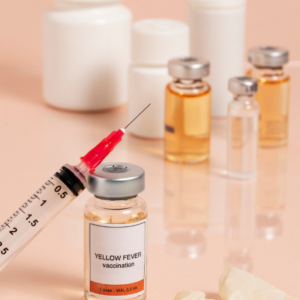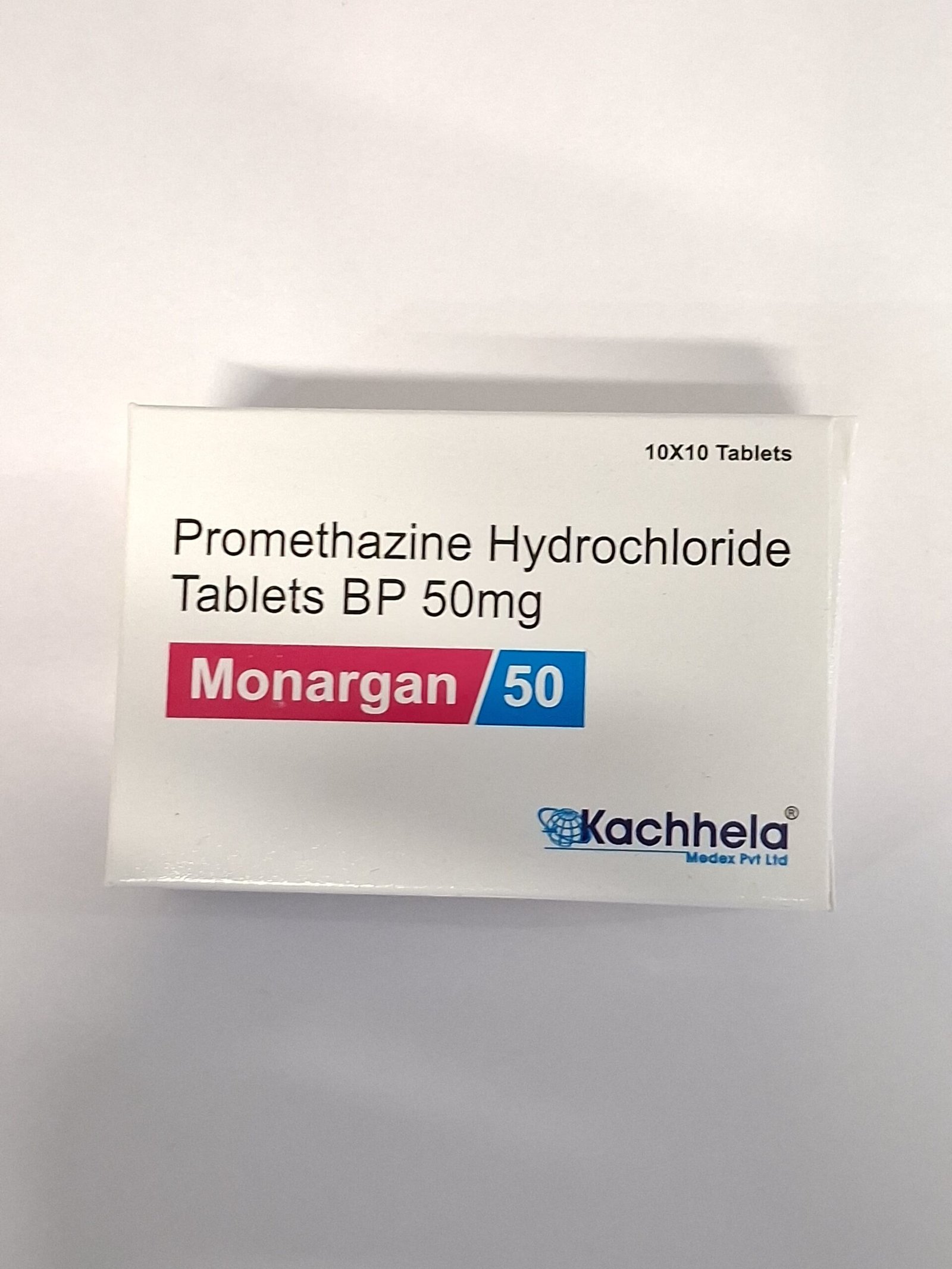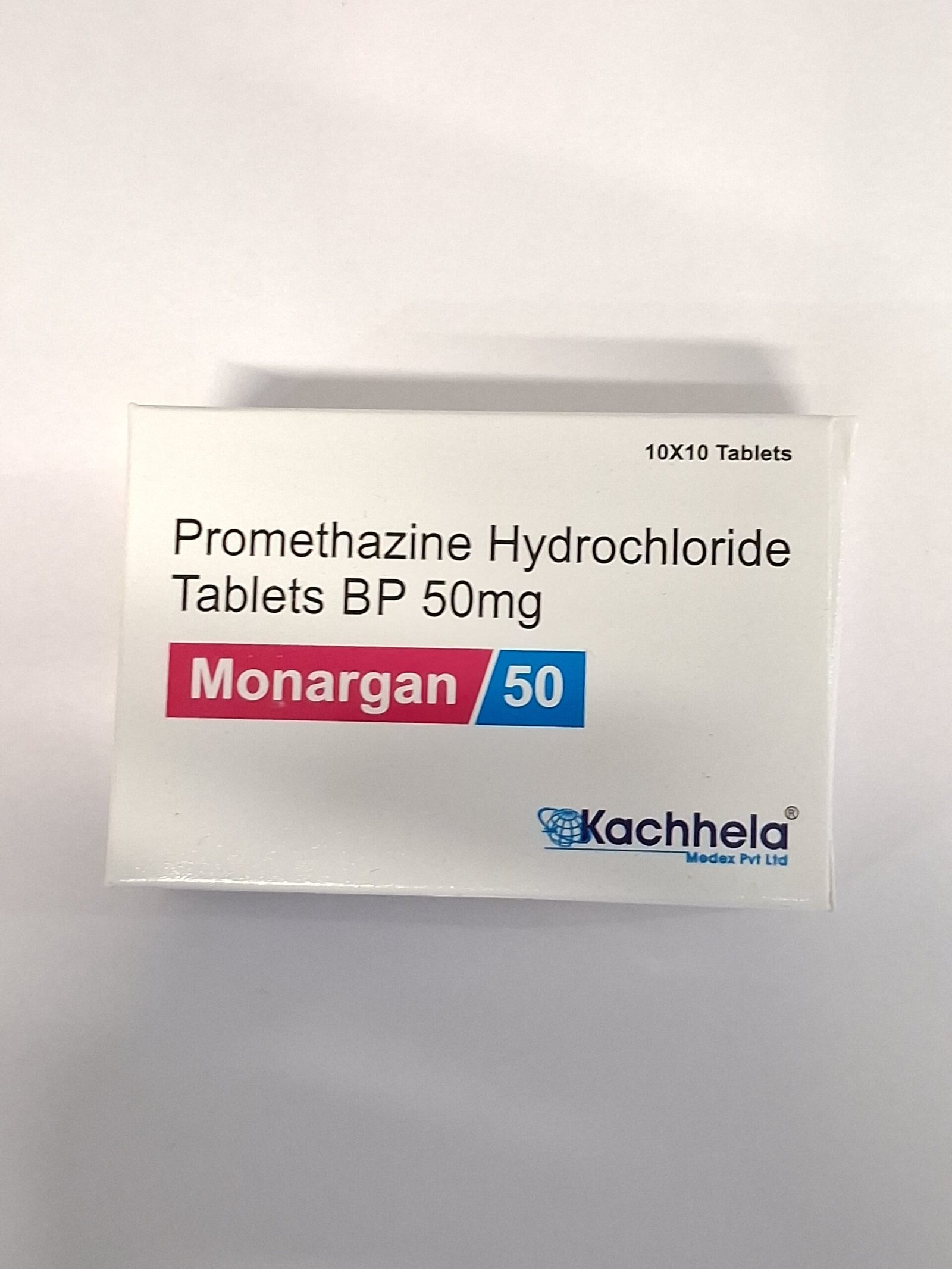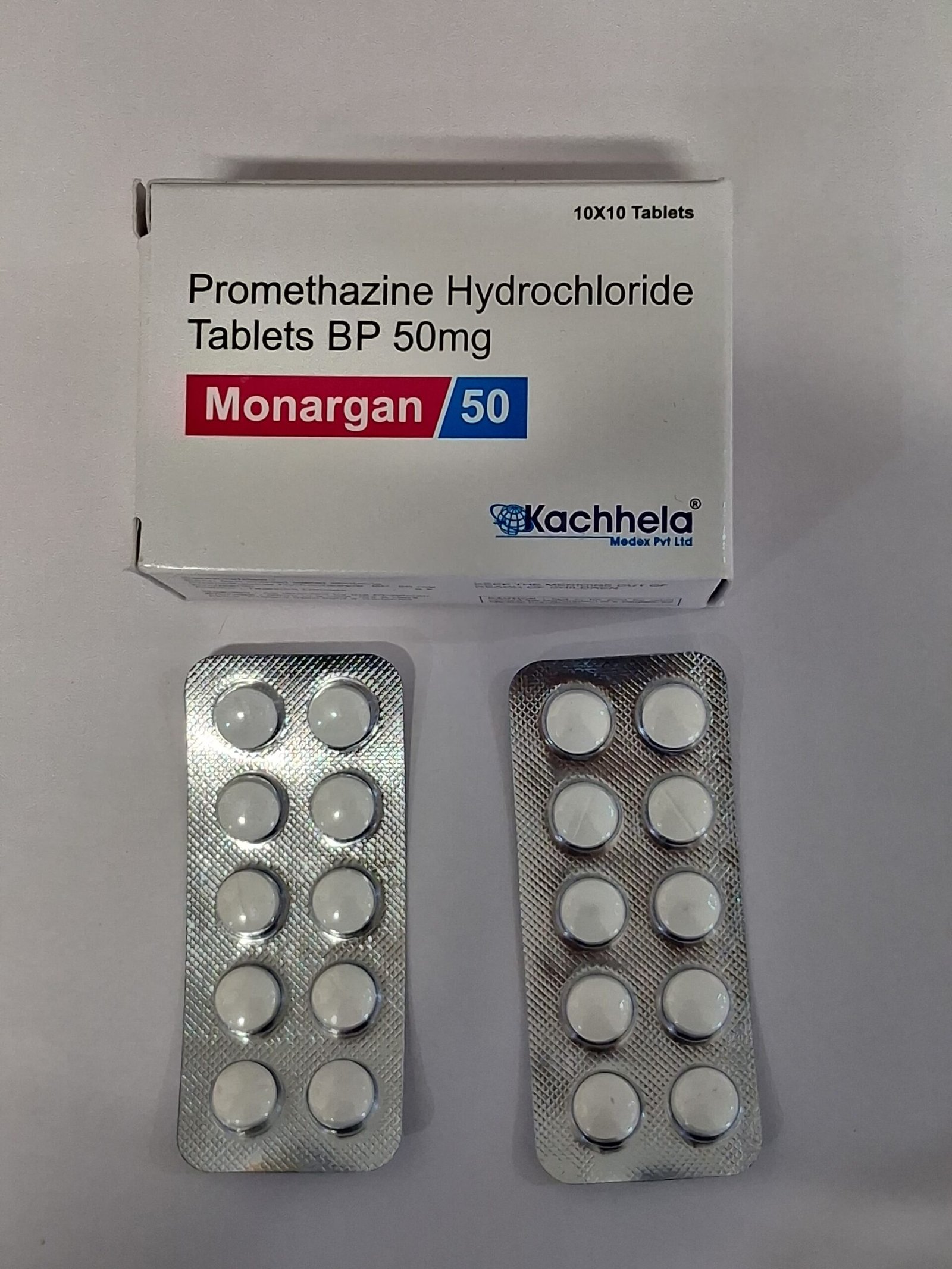Monargan 50mg
| Package | Per tablet | Savings | Price |
|---|---|---|---|
| 180 tablets | $0.1 | $5.04 | $23.04 $18 |
| 150 tablets | $0.1 | $4.2 | $19.2 $15 |
| 120 tablets | $0.1 | $3.36 | $15.36 $12 |
| 90 tablets | $0.11 | $1.52 | $11.52 $10 |
| 60 tablets | $0.12 | $0.68 | $7.68 $7 |
| 30 tablets | $0.1 | – | $3.84 |
What is this medicine?
MONARGAN 50 mg contains promethazine hydrochloride, a first-generation antihistamine with sedative and antiemetic properties. It’s used to treat allergies (including hay fever and urticaria), prevent or relieve motion sickness, manage nausea and vomiting (e.g. post-surgery), and as a short-term sleep aid or sedative before procedures.
What should I tell my health care provider before I take this medicine?
Inform them if you have any of these conditions:
-
Allergy to promethazine or any inactive ingredient (e.g., lactose, dyes)
-
Age under 2 years – contraindicated due to risk of fatal respiratory depression
-
Respiratory issues (asthma, COPD, sleep apnea), liver or kidney disease
-
Glaucoma, enlarged prostate or urinary retention, GI obstruction
-
Seizures or epilepsy (may lower seizure threshold)
-
Bone marrow depression
-
History of neuroleptic malignant syndrome
-
Taking sedatives, opioids, barbiturates, MAOIs, or central depressants
-
Pregnant or breastfeeding — discuss risks and benefits
Also tell them about any:
-
Alcohol use (can worsen drowsiness)
-
Other medications, herbs, supplements you take (risk of interactions).
How should I use this medicine?
-
Adults & children ≥10 years: 50 mg orally, typically at bedtime for sedation or 1–2 hours before travel to prevent motion sickness. Can be repeated nightly for short-term use.
-
Nausea/Vomiting: 25–50 mg every 4–6 hours as needed.
-
Allergies/hives: 25 mg at bedtime or 12.5 mg before meals & at bedtime (max 25–50 mg/day).
-
Follow your provider’s instructions for dose and duration.
-
Overdose: Seek emergency help—signs include extreme drowsiness, seizures, breathing problems, coma.
-
Do not share this medicine.
What if I miss a dose?
-
For scheduled use (e.g. nightly dose): take it as soon as you remember unless next dose is near—then skip and continue normally.
-
Do not double the dose.
-
For single-use doses (e.g., motion sickness): skip if time has passed and resume next time.
What may interact with this medicine?
-
CNS depressants: sedatives, opioids, alcohol—additive drowsiness and respiratory depression
-
MAO inhibitors (or within 14 days): risk of severe sedation/side effects
-
Anticholinergic drugs: increased dryness, blurred vision, urinary retention
-
Antihypertensives: may worsen hypotension
-
Seizure medications: promethazine lowers seizure threshold
-
Many other drug interactions – review all meds with your provider.
What should I watch for while using this medicine?
-
Avoid driving or operating machinery until fully alert—it can cause sedation lasting up to 12 hours.
-
Monitor respiratory function if you have lung problems or in young children.
-
Watch for signs of worsening glaucoma, urinary retention, constipation.
-
Be alert for seizure activity if you have epilepsy.
-
In elderly patients, cognitive impairment and falls may occur—use cautiously.
-
Avoid prolonged use—consult doctor if symptoms persist beyond a week.
What side effects may I notice from this medicine?
Serious – report immediately:
-
Allergic reactions: rash, swelling, breathing difficulty
-
Respiratory depression, especially in children under 2 or with compromised lungs
-
Irregular heartbeat, low blood pressure, palpitations
-
Extrapyramidal symptoms: uncontrolled movements, muscle rigidity
-
Neuroleptic malignant syndrome: high fever, muscle stiffness, confusion
-
Bone marrow suppression: signs of anemia, infection
-
Seizures or changes in mental status
Common mild side effects:
-
Drowsiness, dizziness, confusion, dry mouth, blurred vision, constipation, urinary retention
-
Light sensitivity—use sunscreen and avoid sun exposure
-
Low blood pressure when standing—be cautious getting up quickly
Where should I keep my medicine?
-
Store in original container, protected from light and moisture, at room temperature (20–25 °C / 68–77 °F).
-
Keep out of reach of children.
-
Discard unused medicine after the expiration date.


























